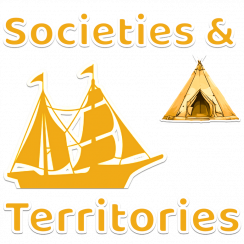A testimony by Roméo Labillois
“The child that I was in the mid-1940s only heard one language at home: Mi’kmaq. On the reserve, everyone spoke Mi’kmaq. At that time, our community [Restigouche] was not, however unilingual: most spoke English, to some extent, and some also spoke French…
It is only at the local [Indigenous] school that we really realized the reality: There was another world, and a completely new language, English. At school we learned the alphabet, we learned to count…
I don’t remember much about the first few days in school, but I remember that in the classroom and in the yard we were forbidden to speak Mi’kmaq, our language. … We learned about Canadian history, world history and geography of the world, the history of America. We were also taught about Catholic religion and the history and values of Catholicism. We had no choice: We had to learn, even if we didn’t want to. We humbly accepted the situation without doing anything. We learned not to mix our two worlds: At home, we spoke Mi’kmaq, and at school, we spoke English…
Clip: Archives de Radio-Canada, Décrochage scolaire et perte d’identité, September 8,1988.
http://archives.radio-canada.ca/societe/education/clips/2986/
Our . . . ancestors were able to survive and to survive their culture because they were a distinct people and stayed distinct from the French and English colonists who settled on their ancestral lands. They survived because they got their livelihood from their land and its resources. But these lands were eventually taken from the [Indigenous] Peoples, and they were moved to reserves. They lost their freedom. They lost their way of life. They still had their language and some land they called theirs, but this land was not really theirs. … “The existence of [Indigenous] languages dates back to time immemorial. This is because there were people who could communicate with one another and transmit their knowledge, their wisdom, their customs, usages, their moral principles and values from one generation to another…
Source : Jacques Maurais, dir. Les langues autochtones du Québec, Québec, Conseil de la langue française, [1992].
Author: Service national du Récit de l’univers social



